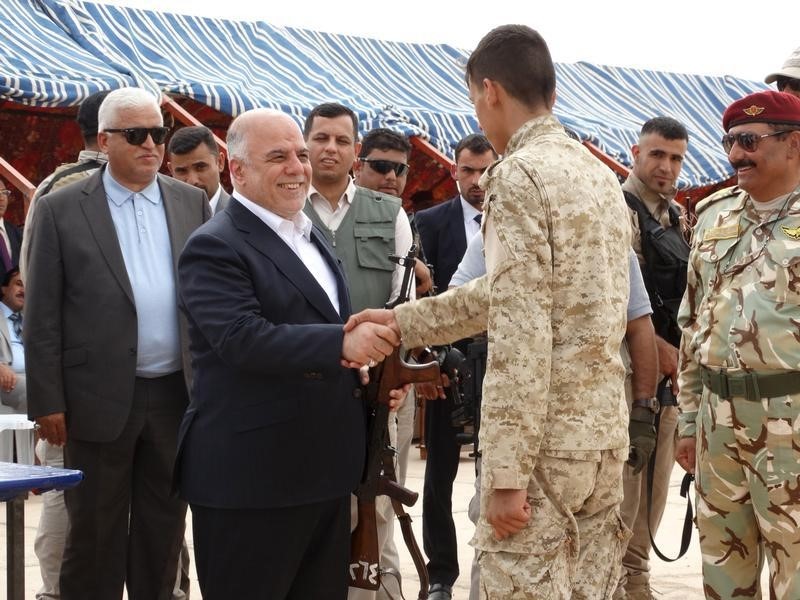By John Irish
PARIS (Reuters) - Iraq's prime minister on Tuesday accused the international coalition fighting Islamic State of not doing enough to tackle the group, and said important members such as Saudi Arabia are not curbing the flow of foreign fighters to his country.
Western and Middle Eastern countries in the coalition are meeting this week in Paris. Part of their agenda is to persuade the Iraqi government to repair its relationship with Iraq's Sunni minority.
The meeting follows the Iraqi government's biggest military setback in nearly a year. On May 17, Islamic State seized Ramadi from the weakened Iraqi army. The capital of the overwhelmingly Sunni Anbar province is just 90 km (55 miles) west of Baghdad.
Since then, government troops and Shi'ite militias have been building up positions around the city. Many of Iraq's minority Sunnis dislike hardline Sunni Islamic State but also fear the Shi'ite militias after years of bloody sectarian strife.
Prime Minister Haider al-Abadi, a moderate Shi'ite, can only persuade Sunni tribes to fight Islamic State if he demonstrates that he can control the powerful Shi'ite militias whose military muscle he now depends on.
He said he was confident that the appeal to the Sunni tribes was "on track" and rejected suggestions that Iraq was not doing enough politically.
"To be honest, we need a lot of political work on the part of the coalition countries. We need an explanation why there are so many terrorists from Saudi Arabia, the Gulf, Egypt ... European countries. If it is due to the political situation in Iraq, why are Americans, French and German (fighters) in Iraq?" he said.
KURDS SAY SNUBBED
In a sign of persistent factional divisions, Iraq's northern Kurdistan region criticised Baghdad for "excluding" it from the Paris meeting, and said the snub was demeaning to the sacrifices of its peshmerga forces fighting Islamic State insurgents.
The autonomous region's department of foreign relations said Kurdish officials had failed to persuade Baghdad to invite them as part of the national delegation, despite calls from other coalition members.
"Unfortunately, the Iraqi government refused our request," a statement from the department said. "It is known, both internally and internationally, that the most effective force fighting ISIL (Islamic State) terrorists on the ground and in a direct manner are the peshmerga."
Abadi said his forces were making progress against Islamic State but needed more support from the international community.
"It is failure on the part of the world," Abadi told reporters before the meeting, which ministers from about 20 countries, including Saudi Arabia and Turkey, will attend.
"The problem is not exclusively in Iraq. We are trying to do our part, but Daesh was not created in Iraq," he said, referring to Islamic State by its mildly derogatory Arabic acronym.
Abadi said Iraq urgently needed more intelligence and weapons, including anti-tank guns. He said Baghdad had received very few arms or ammunition despite coalition pledges to provide more weapons.
"Almost none. We are relying on ourselves," he said, noting that he was waiting for U.N. approval to buy weapons from Iran.
"The air campaign is useful for us, but it's not enough. It's too little. Surveillance is very small. Daesh is mobile and moves in small groups," he said.
U.S. Secretary of State John Kerry will attend the meeting remotely after breaking his leg on Sunday, a senior State Department official told reporters.

"This is not a business-as-usual meeting," the official said. "We're coming in the wake of the events in Ramadi. We're coming to discuss with Prime Minister Abadi his plan ... for liberating Ramadi and Anbar province."